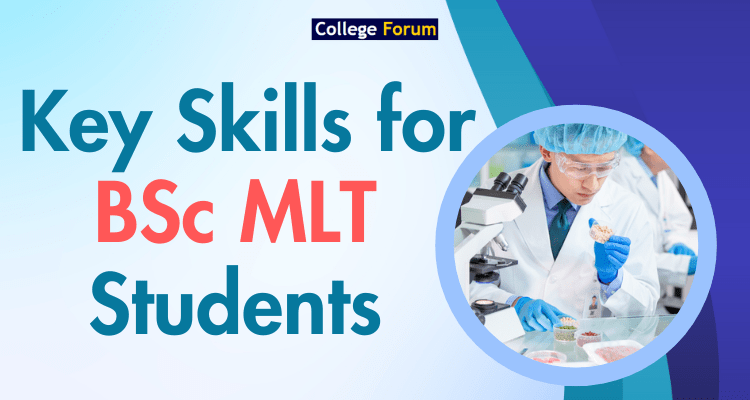Those who want to pursue Bachelor of Science in Medical Laboratory Technology (BSc MLT), the journey ahead promises a rewarding blend of scientific exploration and practical application within the vibrant realm of healthcare. As future medical laboratory technologists (MLTs), you’ll play a crucial role in ensuring accurate diagnoses, effective treatments, and improved patient outcomes. But beyond the theoretical knowledge, honing specific skillsets will be paramount for navigating the diverse and demanding world of medical laboratories.
1. Meticulous Attention to Detail: A medical laboratory thrives on precision. A single misplaced decimal or misread test result can have life-altering consequences. BSc MLT students must cultivate an unwavering eye for detail, meticulously following protocols, documenting procedures accurately, and double-checking every step to ensure the highest levels of accuracy and reliability.
2. Proficiency in Laboratory Techniques: From blood draws and specimen collection to operating sophisticated analytical instruments like microscopes and automated analyzers, BSc MLT students will spend a significant amount of time mastering various laboratory techniques. Dexterity, hand-eye coordination, and a knack for troubleshooting equipment malfunctions are essential for success in this hands-on field.
3. Strong Analytical Skills: Medical laboratory data is the cornerstone of clinical decision-making. BSc MLT students must learn to interpret test results critically, identifying patterns, anomalies, and potential correlations with patient histories and symptoms. Analytical thinking, problem-solving abilities, and a keen eye for statistical trends are crucial for drawing accurate conclusions from complex laboratory data.
4. Excellent Communication Skills: Effective communication is vital not only for interacting with patients and healthcare professionals but also for documenting findings, reporting results, and collaborating with colleagues. BSc MLT students should hone their written and verbal communication skills, ensuring clarity, conciseness, and professionalism in all interactions.
5. Computer Literacy and Data Management: Modern medical laboratories are increasingly reliant on sophisticated software and electronic medical records. BSc MLT students must become proficient in using laboratory information systems (LIS), data analysis software, and other relevant computer applications for efficient data management, reporting, and record-keeping.
6. Adaptability and Continuous Learning: The field of medical laboratory technology is constantly evolving, with new technologies, tests, and procedures emerging regularly. BSc MLT students must possess a strong desire for continuous learning, readily adapting to new protocols, embracing technological advancements, and staying updated with the latest scientific research and clinical guidelines.
7. Teamwork and Collaboration: Medical laboratories function as a team, with MLTs collaborating with pathologists, physicians, nurses, and other healthcare professionals. BSc MLT students should develop strong interpersonal skills, foster effective communication, and learn to work collaboratively within a team environment for optimal patient care.
8. Time Management and Prioritization: Medical laboratories operate under tight deadlines, demanding efficient time management and prioritization skills. BSc MLT students must learn to juggle multiple tasks, manage workloads effectively, and meet deadlines consistently while maintaining accuracy and attention to detail.
9. Ethical and Professional Conduct: Medical laboratory professionals handle sensitive patient information and play a critical role in ensuring patient safety. BSc MLT students must uphold the highest ethical standards, maintaining patient confidentiality, adhering to strict ethical guidelines, and demonstrating professionalism in all interactions and conduct.
10. Emotional Intelligence and Empathy: While scientific expertise is fundamental, the human element is equally important in healthcare. BSc MLT students should develop emotional intelligence, demonstrating empathy and compassion towards patients, understanding their anxieties, and communicating test results with sensitivity and clarity.







